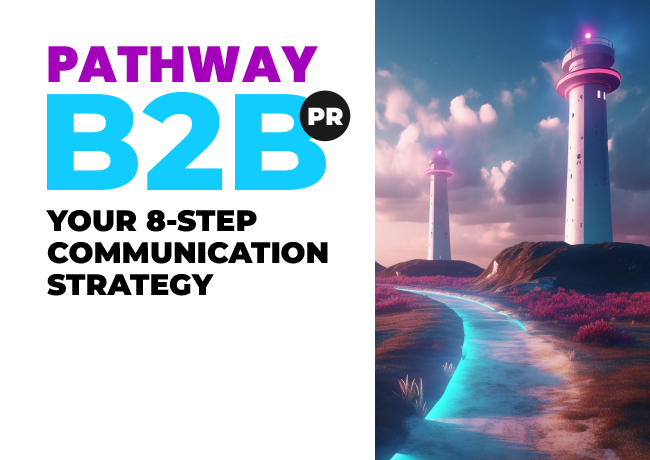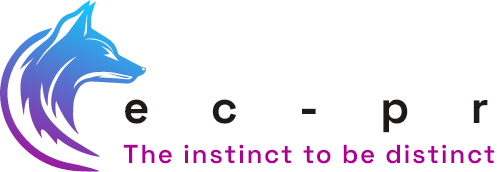
Our complete guide to B2B roundtable events
Why roundtables need to be part of your B2B marketing strategy
B2B roundtable events provide a great platform for brand awareness, building relationships, facilitating focused discussions, sharing expertise, building credibility, and gaining insight. So, it’s no wonder the roundtable has been a core activity for most businesses operating in the B2B space for decades.
What you need to know about roundtable events
Make your roundtable event the success it should be. In this article we’ll consider:
What is a business roundtable event? A definition.
In essence, a roundtable event is when a group of 5-10 subject matter experts and thought leaders sit around a table to discuss a particular topic within a niche. The table has become optional nowadays! But you will find these B2B events hosted in-person and online, live broadcasts, or even podcasts. They’re usually held to encourage participants to share insights and discuss potential solutions to current market challenges, with a moderator on standby to keep the discussion balanced and on-topic.
As soon as your company is ready to establish authority and garner earned media, a roundtable event is the next big step your business should be taking.
Speak, listen, learn: What is the purpose of a roundtable?
A roundtable event is a creative route to reach your target market. It is a way to spread awareness, educate others, and expand your knowledge on a subject that matters in your industry. The overarching point of a roundtable event is to collaborate with others to share information, bond, and increase your collective digital reach.
Uniting other experts on a topic of interest also champions your brand in the media. It suggests you’re not threatened by others who can add to the conversation. Moreover, you cultivate relationships with thought leaders, peer experts, and your audience by participating. Many roundtable events offer opportunities for the audience to interact with speakers, ask questions, or point out key elements not yet mentioned.
Though not an obligatory roundtable element, letting your audience directly weigh in on the conversation will give insight into what concerns or interests are most important to your prospects. This will allow you to devise media strategies that meet your target market where they hang out and create content after the event that will garner far more than a few clicks.
Why host instead of attending B2B roundtables by other companies?
Being a guest for another person’s or company’s roundtable does have its benefits. It gives you exposure to a new audience and builds your credibility, even if it feels like riding the coattails of an already established brand or expert. A logistical benefit of attending over organising is leaving the planning to the other party. Joining others’ B2B roundtables is a cost-effective way to share industry knowledge and strengthen relationships. All you have to worry about is showing up and sharing your expertise!
However, if you want to reap the full benefits of a roundtable event for your B2B brand, you need to host your own. Doing so not only allows your brand to prosper from both owned and earned media, but it also creates a stream of content you can use for your annual content creation and campaign strategies, and you keep control of the topics — ensuring your brand is never tied to a subject that would bore your target audience.
Which Roundtable is right for you?
When choosing your roundtable event, it’s important to consider your resources. Knowing what you can bring to the table and where your strengths lie is important to avoid overstretching your team: the maximum attendance rate, level of IT support, key members, and panel themes all play into the attendees’ experience and the level of complexity you’re willing to take on in-house.
Do you want a large group of people to listen in, or a smaller group so everyone gets an opportunity to speak? Will you be hosting online for convenience or in person for stability and overall experience? Do you prefer that most attendees be experts, prospects, customers, team members, journalists, or a mix?
As a side note, if all this sounds overwhelming, EC-PR’s team has decades of experience planning, hosting, and reporting on business roundtable events.
Online versus in-person business roundtables?
The arrival of COVID-19 and lockdown left irreversible changes in how people interact. Online presence, especially in connecting with others, has become a common and even favoured choice. The benefits are obvious: accessibility, increased attendance, and a greater chance for viewers to feel included. Viewers can pitch their questions or talking points through a variety of features. Online does this, but hosting an online-only event has its drawbacks.
Hosting an online panel then begs the question of whether you should record or livestream it. I recommend you do both. Live streaming and recording the event further enhance viewership. The more eyes, the better, and having them present doesn’t necessarily mean you need to let every single person in a group of 50-100 speak.
Plus, with a recorded video, anyone who missed out during the live, or anyone else who’d like to reference what they might have forgotten within it, can go back and rewatch. Whether you livestream or not, you should record the event for your content team to develop post-event content marketing.
If you host an online event, ensure you include interactive elements that most digital platforms offer such as polls, Q&As, and prompts to “chat in” to keep your audience engaged and, most importantly, listening.
On the other hand, in-person events encourage a humanistic environment that deepens the relationship between you and your guests by establishing a literal common ground. Individuals can talk without the hassle of a Zoom meetup, tech bugs, or lost connections.
If you have somewhere to host a roundtable on-site, face-to-face roundtables keep costs low by avoiding the additional fee of online platforms required for extended video calls. You can also lean on partners and take advantage of their facilities to keep costs down. Why not get them involved by offering them a seat at the table in exchange for the space.
Journalists: members or audience?
Journalists are essential in business PR. They bridge the gap between your business and its target market by supplying daily news about your industry (and your company). Including them is a pivotal way of building and fortifying your brand’s connections.
Having journalists as audience members allows them to compile information from the panel for future reporting, spread awareness to their audience, and show the world that your company remains vigilant to industry events and changes.
Journalists, as core members of the panel, offer an enriching discussion where their unique perspectives can amplify audience voices without needing to pass the mic through a crowd of onlookers. Also, with journalists prioritising panel topics as part of their day-to-day jobs, having them as panellists combines their expertise in a way company thought leaders may not be able to.
Public versus private business roundtables?
Industry topics strike interest in various target markets; however, you shouldn’t mistake that for your reason for hosting a public roundtable. Public roundtables are perfect for closing the gap between everyday individuals and your company’s expertise. It’s an event that focuses on providing clarity and space for people whose attention your brand values.
Open discussion is ideal for business development and provides more opportunities for long-tail marketing campaigns, so, at EC-PR, we prefer not to limit our speakers for any reason.
Discussions regarding more complex issues may benefit from a private event. Industry specialists can delve deeply into nuances and dissect elements in which the everyday man or woman doesn’t share the same knowledge. Of course, these events maintain a smaller, more exclusive setting. Knowing what kind of discussion you want to have should steer you towards one of these two choices.
You may choose to keep the event private and host it under the Chatham House Rule. That means that participants are free to use the information received, but neither the identity nor affiliation of the speaker(s) nor that of any other participant may be revealed. This can be useful for shaping the future of business strategy and product development.
How to choose the right roundtable theme
Above all else, a roundtable event needs a standout theme. What is your journey, and where is it headed? Think about how expansive your industry is. There are thousands of topics and subtopics, but you need to limit those chosen for your business roundtable event to one — a hyper-niche topic of interest will draw a greater crowd, and people can later expand on it.
For example: we’re EC-PR. If we hosted a roundtable, we’d speak on Public Relations in Business, but not in its entirety. That’s a full university course that few of our target clients would attend! Instead, we may host a panel on why you need executive profiling, how to incorporate AI into your communications strategy, or the downfalls of news management without a social media team — not all three.
Top tips for your next business roundtable event
I know there are “ifs and buts” to consider. Chances are, your first roundtable won’t be a cakewalk, and the road to travel is riddled with doubts: “I don’t know how to organise an event.” “We don’t have the team to plan the speaking notes for this.” “Our C-suite isn’t up to public speaking.”
Here are my top tips for your next business roundtable event, answering every fear and concern you can think of.
Whom should I invite?
The great thing about hosting roundtable events is that you oversee who gets to join. Roundtables may be attended by journalists, peer companies, thought leaders, industry experts, your clients, and prospects. Since roundtable events focus on sharing knowledge rather than selling services, try to get a good mix of attendees through targeted invitations and promotion. Be clear about who would benefit from attending.
Who should moderate?
Since business roundtable events also rely on various individuals to make up attendance, if your C-suite doesn’t want to speak at the event, they don’t have to. Do elect an unbiased party to act as moderator, but having someone from your company moderate is the ideal way to have more representation of your company at the roundtable.
How to design the campaign
On the technical end, planning a roundtable requires skill and inside knowledge. Connecting with EC-PR to build the best roundtable experience eliminates these concerns. Our team will build a list of invitees and speakers, set up a promotional plan to ensure it’s well-attended, plan your talking points, and manage the years’ worth of content afterwards.
Top tips for improving roundtables you’ve already planned
Levelling up on business roundtable hosting can be done, even if you’ve already started planning. These are my expert recommendations after years of hosting and revelling in roundtable events:
Given their communal nature, roundtable event conversations can go off track. People become sidetracked and naturally fall off topic. With some being more comfortable than others speaking, your guests might not even be familiar with each other, but you need to ensure:
- The moderator allows everyone to speak
- The central topic is mentioned in every contribution
- Throughout, insights are shared, not just opinions
As you prepare for any speech, practice, and exposure are how your participants and moderator improve. While practicing, focus on the following:
- Encourage speakers to familiarise themselves with the roundtable talking points to better steer conversation should it go awry.
- Stay up-to-date with the niche to have immediate knowledge of what may be touched on in the discussion.
- Leave room for others to chime in and call on those struggling to get a word in edgewise.
- As a moderator, remember to sit back sometimes. You aren’t responsible for speaking as much as you are for ensuring everyone else has an equal chance to express their own views.
The above is a lot to take in and even more to put into practice. If you’re busy building your business, EC-PR handles the prep and debriefing for B2B roundtable events, and we’re happy to do the same for you. See our recent case study for more on how EC-PR can champion your brand in PR and at the roundtable.

Your 8-Step Communication Strategy Guide
A comprehensive guide to delivering your business goals using intelligent and relevant messaging.
Subscribe to our updates
Stay up to date with the latest insights, case studies and PR guides.

